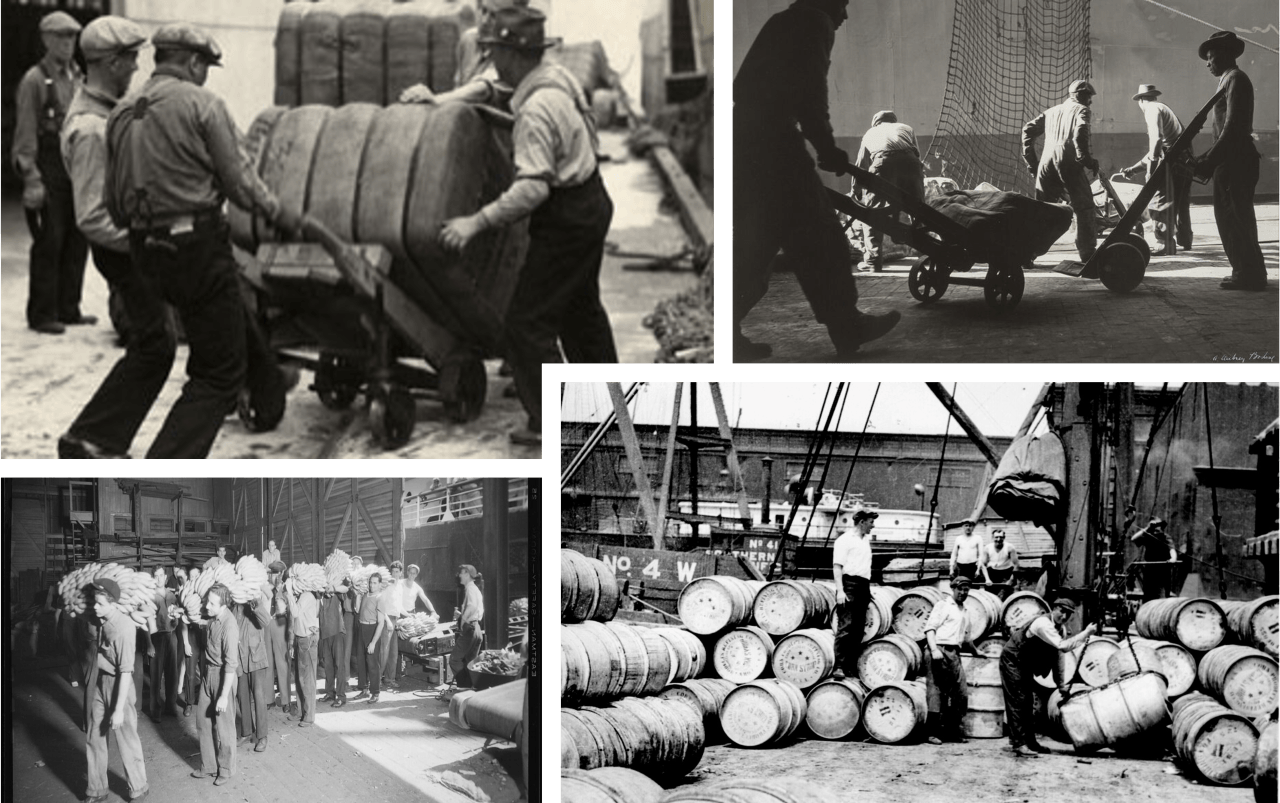


Throughout history working conditions have triggered unrest and strike action or negotiation and innovation by turns. When unchecked, there have been calamities such as those who have perished in all too many textile sweatshops or the storage disaster that wrecked the docks in Beirut recently.
Hull has had a long history of standing up for safety at work – Lil Bilocca and the Headscarf Revolutionaries argued forcefully for radio operators and other regulations in the unregulated fishing industry saving many lives in an industry now long gone from West Hull and the docks have been the scene of many disputes that have divided opinion – in much the same way as strike action always does.
In June 1911 4,000 men gathered close by the Boer War Memorial, Hull. They carried a banner from the International Seamen’s and Fireman’s Union in protest against working conditions and wages. Of 4,304 men killed at work across all occupations; 1,254 were seamen. Beatings, bullying and intimidation were rife and union members often fired backed up by medical records. Working for only 8 months per year, they had to stretch their wages over the lean months. Dockers in Hull, where most trade was with the Baltic which froze over in winter months, were in the same position with men selected for work from the pen every day – often for the price of a pint or more in the pub. Safety at work was equally perilous – the timber yards full of slippery timbers difficult to handle with no workwear to protect. This was a big issue and even pupils from St Charles RC school went out on strike in common cause!
By the 1860s, concern about the high death rate from lung diseases in certain industrial occupations led to a Report by Sir John Simon, Chief Medical Officer of the Privy Council, who declared that ‘The canker of industrial diseases gnaws at the very root of our national strength.’ The Factory Act of 1864 included a requirement that ‘every factory shall be ventilated in such a manner as to render harmless, so far as is practicable, any gases, dust or other impurities generated in the course of manufacture, that may be injurious to health’.
Almost fifty years after Dr Thackrah of Leeds had made his suggestion, Section 36 of the 1878 Act at last required exhaust ventilation by means of a fan for the removal of dust likely to be injurious to health. Very little was done and words of more or less the same effect feature in Section 63 of the Factories Act 1961.
Women employed in match factories were scandalously exposed to white (yellow) phosphorous, causing the disfiguring ‘Phossy Jaw’ disease, the ‘match girls strike’ of 1888 and eventually the international prohibition of use of the dangerous substance by the Berne Convention of 1906, implemented by an Act of Parliament in Great Britain in 1908.
Fast forward to the 1970s and conditions on the docks remained dangerous. “There’s no old dockers in East Hull” people would say as the unloading of asbestos - used as insulation in the construction industry – was the direct cause of fatal pulmonary disorders. Port employers were slow to react; snow balls made of asbestos snagged in ship holds were used for fun. The high water mark of UK imports was 1975 – despite the fact that in 1918 American Insurance companies refused to insure asbestos workers and it was known conclusively by 1940s that asbestos could cause cancer. Today, every five minutes someone dies of a disease related to asbestos globally. An EU Report highlights that 500,000 people will die of asbestos-related cancer in Europe alone by the year 2030.
Health and Safety at work has a long history and, as Covid demonstrated, has an impact upon working practices. Ventilation in the workplace is no longer an issue with sweatshops; there are laws in place stipulating that workplaces need to be well ventilated with clean air is drawn from a source outside. More locally, Hull based ARCO – founded in 1893 and named the Asbestos and Rubber Company in 1898 - have moved their business model from materials and workwear to an expertise on Health & Safety at work advising on workplace safety, researching everything from improved hard hats and apparel helping to change behaviours and outcomes as well as supply.
Perhaps the last word on the cause of 1911 strikes should come from none other than Daniel Defoe, whose fictional character Robinson Crusoe set sail from Hull and whose Essay on Projects (1697) offered a set of proposals for public works. Shipping, Defoe observed, was especially risky and hazardous for crews and so he proposed an insurance scheme for merchant seamen – their pay should match the risks they faced such as intermittent work and even pirate raids. Pay alone was not enough – a secure livelihood earned in a safe environment had to be in the equation. The rate of pay is only part of a multi-dimensional work context that should concern us all.



Hull Medical Society | Privacy Policy